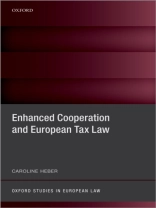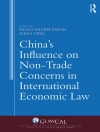The enhanced cooperation mechanism allows at least nine Member States to introduce secondary EU law which is only binding among these Member States. From an internal market perspective, enhanced cooperation laws are unique as they lie somewhere between unilateral Member State laws and uniform European Union law. The law creates harmonisation and coordination between the participating Member States, but may introduce trade obstacles in relation to non-participating Member States. This book reveals that the enhanced cooperation mechanism allows Member States to protect their harmonised values and coordination endeavours against market efficiency. Values which may not be able to justify single Member State’s trade obstacles may outweigh pure internal market needsif an entire group of Member States finds these value worthy of protection. However, protection of the harmonised values can never go as far as shielding participating Member States from the negative effects of enhanced cooperation laws. The hybrid nature of enhanced cooperation laws – their nexus between the law of a single Member State and secondary EU law – also demands that these laws comply with state aid law. This book shows how the European state aid law provisions should be applied toenhanced cooperation laws. Furthermore, the book also develops a sophisticated approach to the limits non-participating Member States face in ensuring that their actions do not impede the implementation of enhanced cooperation between the participating Member States.
Caroline Heber
Enhanced Cooperation and European Tax Law [PDF ebook]
Enhanced Cooperation and European Tax Law [PDF ebook]
ซื้อ eBook เล่มนี้และรับฟรีอีก 1 เล่ม!
ภาษา อังกฤษ ● รูป PDF ● หน้า 560 ● ISBN 9780192653321 ● สำนักพิมพ์ OUP Oxford ● การตีพิมพ์ 2021 ● ที่สามารถดาวน์โหลดได้ 3 ครั้ง ● เงินตรา EUR ● ID 7865902 ● ป้องกันการคัดลอก Adobe DRM
ต้องใช้เครื่องอ่านหนังสืออิเล็กทรอนิกส์ที่มีความสามารถ DRM












